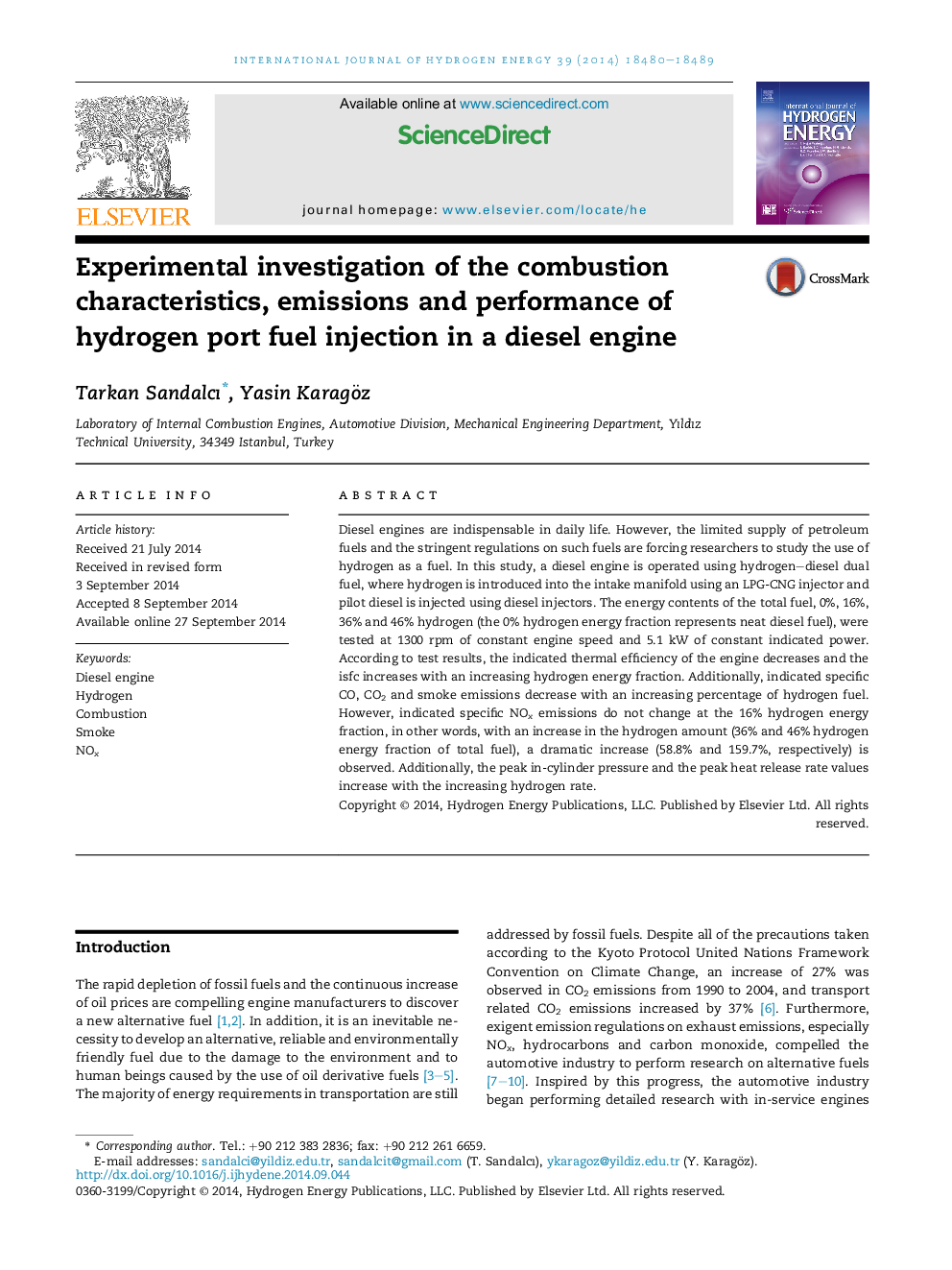| Article ID | Journal | Published Year | Pages | File Type |
|---|---|---|---|---|
| 1280858 | International Journal of Hydrogen Energy | 2014 | 10 Pages |
•Effect of H2 addition on isfc and emissions of a diesel engine was investigated.•Increasing amount of H2 reduces CO2, CO and smoke emissions.•More than 16% H2 enrichment dramatically increases NOx emissions.•H2 addition causes a premixed combustion of an explosive type.
Diesel engines are indispensable in daily life. However, the limited supply of petroleum fuels and the stringent regulations on such fuels are forcing researchers to study the use of hydrogen as a fuel. In this study, a diesel engine is operated using hydrogen–diesel dual fuel, where hydrogen is introduced into the intake manifold using an LPG-CNG injector and pilot diesel is injected using diesel injectors. The energy contents of the total fuel, 0%, 16%, 36% and 46% hydrogen (the 0% hydrogen energy fraction represents neat diesel fuel), were tested at 1300 rpm of constant engine speed and 5.1 kW of constant indicated power. According to test results, the indicated thermal efficiency of the engine decreases and the isfc increases with an increasing hydrogen energy fraction. Additionally, indicated specific CO, CO2 and smoke emissions decrease with an increasing percentage of hydrogen fuel. However, indicated specific NOx emissions do not change at the 16% hydrogen energy fraction, in other words, with an increase in the hydrogen amount (36% and 46% hydrogen energy fraction of total fuel), a dramatic increase (58.8% and 159.7%, respectively) is observed. Additionally, the peak in-cylinder pressure and the peak heat release rate values increase with the increasing hydrogen rate.
